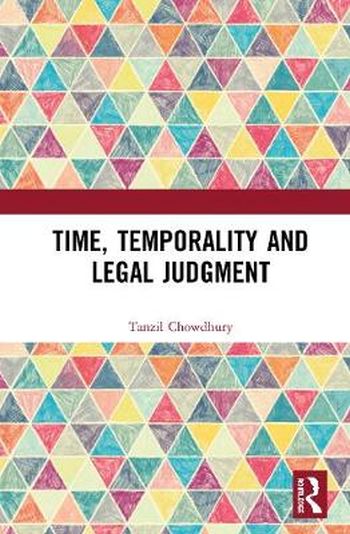
This book challenges the correspondence theory of judicial fact construction- that legal rules resemble and subsume facts ‘out there’- and instead provides an account of fact construction through legally-produced times- or adjudicative temporalities- that structure legal subject and event formation in legal judgment.
Drawing on Bergsonian and Gadamerian theories of time, this book details how certain adjudicative temporalities can produce fully willed and autonomous subjects through ‘time framed’ legal events- in effect, producing the paradigmatic liberal legal subject- or how alternative adjudicative temporalities may structure legal subjects that are situated and constituted by social structures. The consequences of this novel account of legal judgement are three fold. The first is that the selection between different adjudicative temporalities is generally indeterminate though influenced by wider social structures. As it will be argued, social structures, framed as a particular type of past produced by certain adjudicative temporalities, may either be incorporated in the rendering of the legal event or elided. The second is that, with the book’s focus on criminal law, different deployments of adjudicative temporalities effect responsibility ascription. Finally, it is argued that the demystification of time as that which structures event and subject formation, reveals another way in which to uncover the politics of legal judgement and the potential for its transformative potential, both through either its inclusion or elision of social structures in adjudication’s determination of facts.
The book will be of interest to students and scholars in the field of legal judgment, legal theory and jurisprudence.